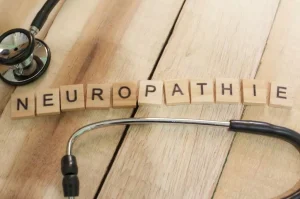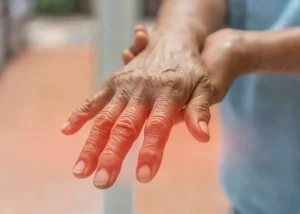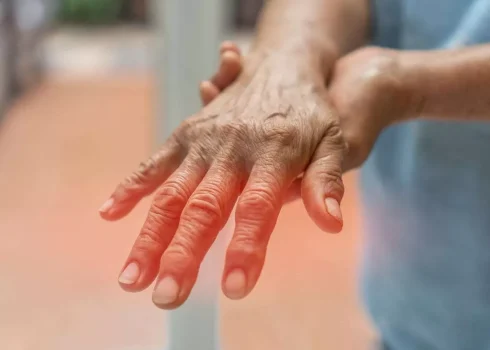
At Healthgrades, our Editorial Team works hard to develop complete, https://ecosoberhouse.com/ objective and meaningful health information to help people choose the right doctor, right hospital and right care. Our writers include physicians, pharmacists, and registered nurses with firsthand clinical experience. All condition, treatment and wellness content is medically reviewed by at least one medical professional ensuring the most accurate information possible.
Rehab Doesn’t Help
There are resources available, from support groups to professional treatment programs. Don’t let misconceptions or fear of stigma prevent you from seeking the support you need. Despite a large body of scientific research, myths and misconceptions about addiction remain prevalent in today’s society, contributing to stigma, barriers to treatment, and higher health burdens. Detox alone is unlikely to result in sustained recovery, but it is still necessary in many cases. Alcohol detoxification can be dangerous for the individual and should not be attempted alone.
- The belief that an individual can overcome addiction through sheer willpower alone is both simplistic and misguided.
- By recognizing that addiction can affect anyone, we can better understand the importance of prevention efforts, early intervention, and accessible treatment options for all those in need, regardless of their background.
- Download our free Guide to Understanding Alcohol Detox to learn about the prevalence of Alcohol Use Disorder (AUD) in American society and available treatment options.
- This massive healthcare failure is fueled by the stigma attached to uncontrollable craving and the addicted person’s own denial.
Drug Addiction Misconceptions: Debunking Common Myths and Stereotypes
This massive healthcare failure is fueled by the stigma attached to uncontrollable craving and the addicted person’s own denial. If a person has had previous treatment failures, accepting addiction as untreatable may seem easier than risking another disappointment. This hopeful prognosis makes it all the more distressing that uncontrollable craving is still among the least treated of chronic health problems. A mere 10 percent of addicted individuals get the help they need, and doctors fail to recognize addiction in their patients more than half the time ii.
Myths About Substance Abuse
In reality, though, anyone can be an addict, even if they don’t “look” like it. Beware this myth, as it could prevent you from spotting that someone (maybe even yourself) is in trouble. Instead of accepting the myths, it’s important to do your research and base your beliefs on facts rather than opinions. Download our free Guide to Understanding Alcohol Detox to learn about the prevalence of Alcohol Use Disorder (AUD) in American society and available treatment options. The table above highlights various aspects of an individual’s identity that exist beyond their addiction. Each person has unique qualities that contribute to who they are, irrespective of their challenges.
#3. People usually get addicted to one type of substance.
Intense alcohol cravings can lead to leaving a treatment program against advice or early relapse. Medical supervision is often required during alcohol detox to manage the risks. These statistics demonstrate that recovery is not only possible but is a reality for millions of people who have overcome addiction. Attempting to quit cold turkey without proper medical supervision can lead to serious health complications, particularly for those with severe addiction or those addicted to substances like alcohol or benzodiazepines. Supervised withdrawal and medical assistance can help ensure a safer, more comfortable detoxification process and reduce the risk of relapse.
The good news is that family members, friends, and colleagues can find the help they need to take charge of their own lives and maximize a loved one’s chances for recovery. This table illustrates the variations in success rates for different types of addiction during the myths about addiction and recovery first year of recovery. These figures emphasize that while many individuals do find success through rehabilitation, there is no universal guarantee. Support groups, therapy sessions, and regular check-ins with healthcare providers can provide the scaffolding needed to maintain sobriety in the face of life’s challenges. These resources offer a safety net, catching individuals before a minor slip becomes a full-blown relapse.

How a Residential Treatment Program Works for Drug or Alcohol Addiction
- Many like James, go to treatment to find a way to keep using—just without the downside.
- As the National Institute on Drug Abuse explains, 40 to 60% of people in recovery from addiction experience setbacks or relapse.
- Changes in brain chemistry caused by addictive substances use the reward pathway of the brain to elicit a feeling of pleasure.
- Being ahead of the game in dehydration, however, is particularly important for athletes or for people who live in warm climates wherein their cases of water loss are more pronounced.
This belief can lead to feelings of shame, guilt, and hopelessness among those who experience relapse, and may discourage them from continuing their recovery journey. The notion that an individual must hit “rock bottom” before they can begin to recover from addiction is a dangerous and misleading myth. This idea suggests that a person must experience severe negative consequences, such as losing their job, relationships, or health, before they will be motivated to seek help for their addiction. Understanding the realities of addiction recovery and the role of relapse can help dismantle myths about rehabilitation and foster a more informed perspective. Empathy and support are crucial in navigating the complexities of recovery as individuals work towards lasting change.
Importance of Addressing Misconceptions

With both vulnerable populations, black and white, dismal failure is the constant companion of our “best” efforts in the addiction field. Three or four people raised their hands – say five percent of quitters. Later, my host at the conference, Liam O’Loughlin, told me over dinner how he had badly hurt his hand, but stopped taking the powerful opioid and anti-inflammatory he had been given after just three days.


There is no sign that the failure of this perspective is causing or will cause any prevailing actors to change their thinking. Detoxification helps individuals overcome physical dependence on substances, but it does not address the underlying psychological, emotional, and behavioral issues that contribute to addiction. Even though the leading authorities on addiction agree that addiction is a chronic disease similar to heart disease, diabetes, and cancer, addicts are still treated as second-class citizens. Many treatment centers believe confrontational, shame-based methods are necessary to motivate addicts. In addition to contributing to the stigma of addiction and deterring people from seeking treatment, research shows that shame is a strong predictor of relapse. These myths hurt families and individuals living with substance use disorders and make it more difficult for people to seek treatment.
